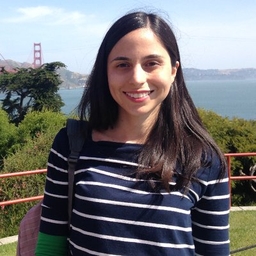
Mariana Lenharo
Life Sciences Reporter at Nature
Life sciences reporter @Nature | @ColumbiaJournMA alumna
Articles
-
2 weeks ago |
nature.com | Mariana Lenharo
Artificial intelligence (AI) already helps clinicians to make diagnoses, triage critical cases and transcribe clinical notes in hospitals across the United States. But regulation of medical AI products has not kept up with the rapid pace of their adoption, argue researchers in a report published 5 June in PLOS Digital Health1.
-
1 month ago |
nature.com | Mariana Lenharo
Shifting to a different research field can have negative consequences for a scientist, according to an analysis1. A team assessed millions of scientific papers and concluded that, when a scientist moves away from their original area of expertise, their publications receive fewer citations than their previous work. The larger the shift, the greater the effect — a phenomenon the authors of the study have named the ‘pivot penalty’.
-
1 month ago |
nature.com | Mariana Lenharo
A new machine-learning tool can predict which individuals are at high risk for developing postpartum depression, an often-debilitating condition that affects 17% of people giving birth worldwide1. The tool could help to identify new parents who would benefit the most from preventive care. Postpartum depression causes intense feelings of sadness, anxiety or despair that can occur up to one year after having a baby.
-
1 month ago |
pourlascience.fr | Mariana Lenharo
La science-fiction a longtemps entretenu l’idée d’une intelligence artificielle qui deviendrait consciente, l’une des plus célèbres illustrations étant HAL 9000 (CARL 500 en français), le superordinateur devenu « humanophobe » dans 2001 : l’Odyssée de l’espace, le film de Stanley Kubrick sorti en 1968. Avec les progrès rapides de l’intelligence artificielle (IA), cette possibilité devient de moins en moins fantaisiste et a même été reconnue à demi-mot par les leaders du domaine.
-
1 month ago |
nature.com | Mariana Lenharo
An upgraded version of Google’s medical chatbot can use smartphone photos to diagnose rashes and can evaluate a host of other types of medical imagery — improving the bot’s ability to pinpoint the cause of ailments. An earlier version of the artificial-intelligence (AI) system outperformed physicians in diagnostic accuracy and bedside manner. The upgrade also did better than human doctors at interpreting images such as electrocardiograms and PDFs of laboratory results.
Try JournoFinder For Free
Search and contact over 1M+ journalist profiles, browse 100M+ articles, and unlock powerful PR tools.
Start Your 7-Day Free Trial →X (formerly Twitter)
- Followers
- 2K
- Tweets
- 1K
- DMs Open
- Yes

RT @Nature: A man with a severe speech disability is able to speak expressively and sing using a brain implant that translates his neural a…

Hospitals across the US are embracing AI tools for diagnosis and care. But experts warn that current regulations aren’t enough to keep patients safe. I spoke with researchers calling for oversight beyond the FDA. My latest story for @Nature: https://t.co/jHlEQudvk8

RT @Nature: The COVID-19 pandemic showed the value of changing direction in research. It should be incentivized, encouraged and celebrated.…